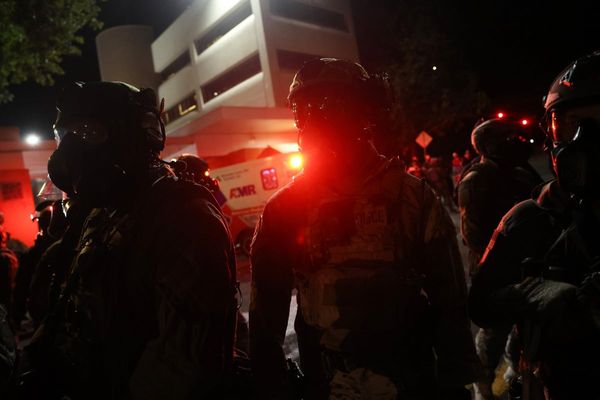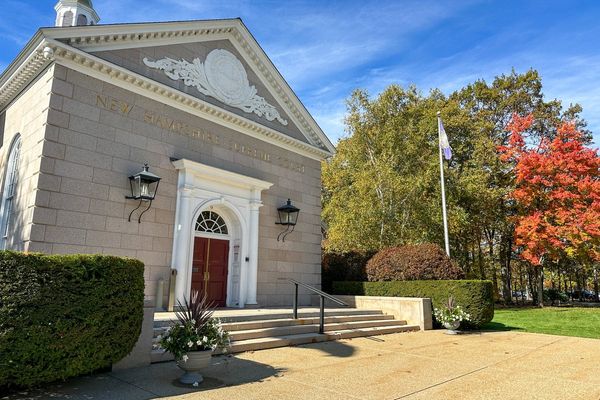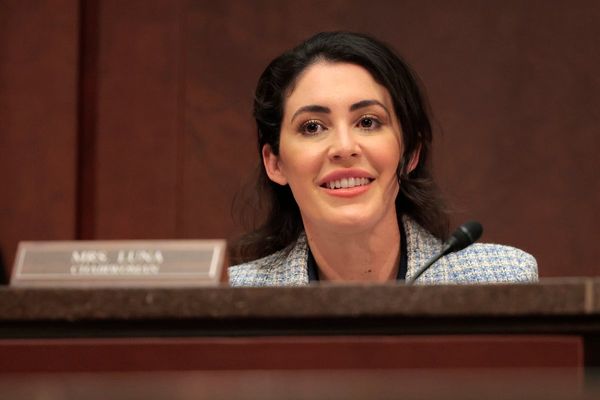
Indigenous Australians are significantly over-represented in the number of strip searches conducted by police in New South Wales, representing 12% of all searches in a two-year period despite only making up 3.4% of the state’s population.
The Guardian can reveal that between 2016 and 2018 police in NSW conducted 1,183 strip searches on Indigenous people in the state, including one 10-year-old and two 11-year-olds.
The figure shows Indigenous Australians are disproportionately targeted by police using the controversial practice.
The data was obtained by the Redfern Legal Centre via freedom of information laws and comes as the centre seeks to launch a landmark class action lawsuit against the NSW police over the alleged misuse of the practice by officers in the state.
Samantha Lee, the centre’s police powers solicitor, said the use of the controversial practice had the potential to have a particularly negative impact on Indigenous Australians.
“Strip search law is the only law in Australia that allows a police officer to order a child as young as 10 to take off all their clothes and stand naked while an adult inspects their body,” she said.
She said the “humiliating practice” was “eroding community relations” between Aboriginal and Torres Strait Islander people and police.
“Strip searches are a harmful and invasive practice that leave people feeling traumatised and distraught, and scared of approaching police when help is needed,” she said.
The use of strip searches has been the subject of significant criticism in NSW following a police watchdog investigation which revealed evidence of the wide-spread misuse of the practice by officers.
In February the Law Enforcement and Conduct Commission released an investigation into the search of a 16-year-old Aboriginal boy who was forcibly made to squat by a NSW police sergeant. The investigation found the search was unlawful and revealed widespread failures in the training of police.
The NSW government and police have consistently defended the use of strip searches. The police commissioner, Mick Fuller, has claimed reducing strip searches could lead to an increase in knife crime, while in statements the force has said it is “committed to continuous improvement and has developed initiatives to standardise operational orders and enhance compliance”.
“The recent introduction of dedicated triage officers at events has created another layer of supervision for strip searches conducted at music festivals,” NSW police have previously said in a statement.
The Guardian has previously revealed that police conducted 122 strip searches on girls and 340 on boys between 2016 and 2019. The data shows that about 11% of the children subjected to the controversial practice by police during the period were Indigenous despite making up about 6% of the population under the age of 18.
“These figures show that Aboriginal and Torres Strait Islander people are being disproportionately targeted by this invasive practice,” Lee said.
“These traumatising searches are being carried out on the very young to the very old.”
It comes amid growing concern about the role policing plays in the staggering over-representation of Indigenous Australians in the justice system, following the Black Lives Matters protests which have swept the globe in the wake of George Floyd’s death at the hands of police in the US.
Prominent figures including the former prime minister, Tony Abbott, have incorrectly suggested there is “no evidence” the justice system discriminates against Indigenous Australians. On Sunday Abbott was quoted as attributing disproportionate rates of incarceration of Indigenous people to a “higher offending rate”.
But despite poor data transparency among police agencies in Australia, there is significant evidence to suggest widespread over-policing of the Indigenous population.
Last week, the Guardian revealed a stark disparity in the use of the NSW cannabis cautioning scheme by police between Indigenous and non-Indigenous Australians.
Data obtained by the Guardian showed that between 2013 and 2017 only 11.41% of Indigenous Australians caught by police with small amounts of cannabis were issued cautions, compared with 40.03% of the non-Indigenous population.
There are widespread reports of over-policing of public order offences in Indigenous communities, and over-representation in charges for use of offensive language and imprisonment for failure to pay fines.







